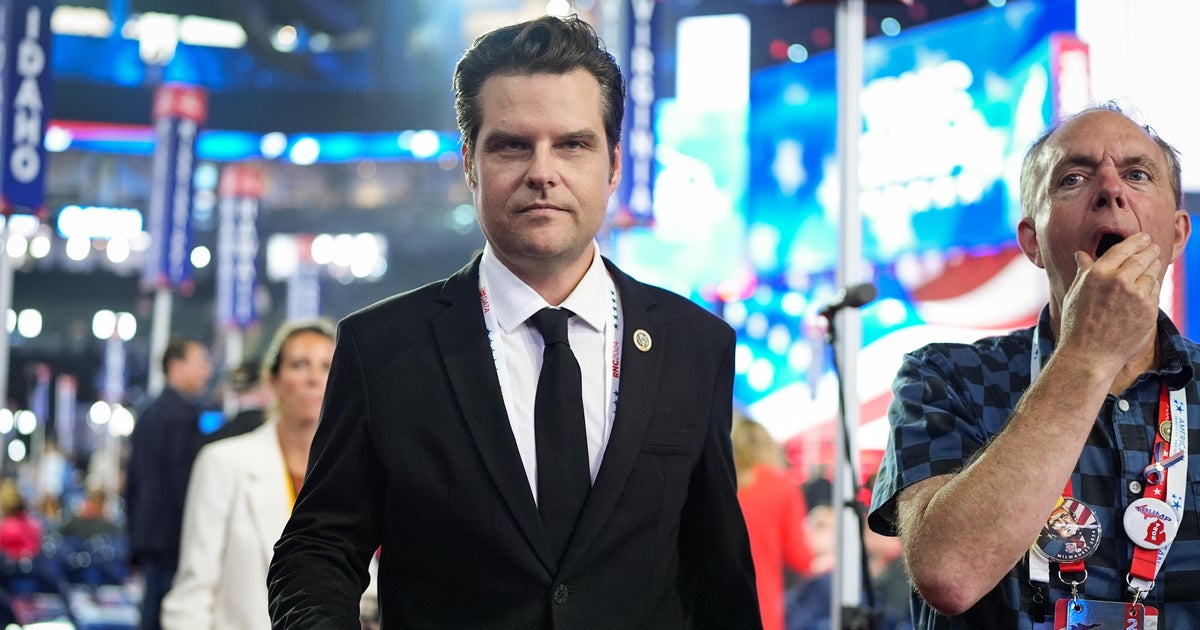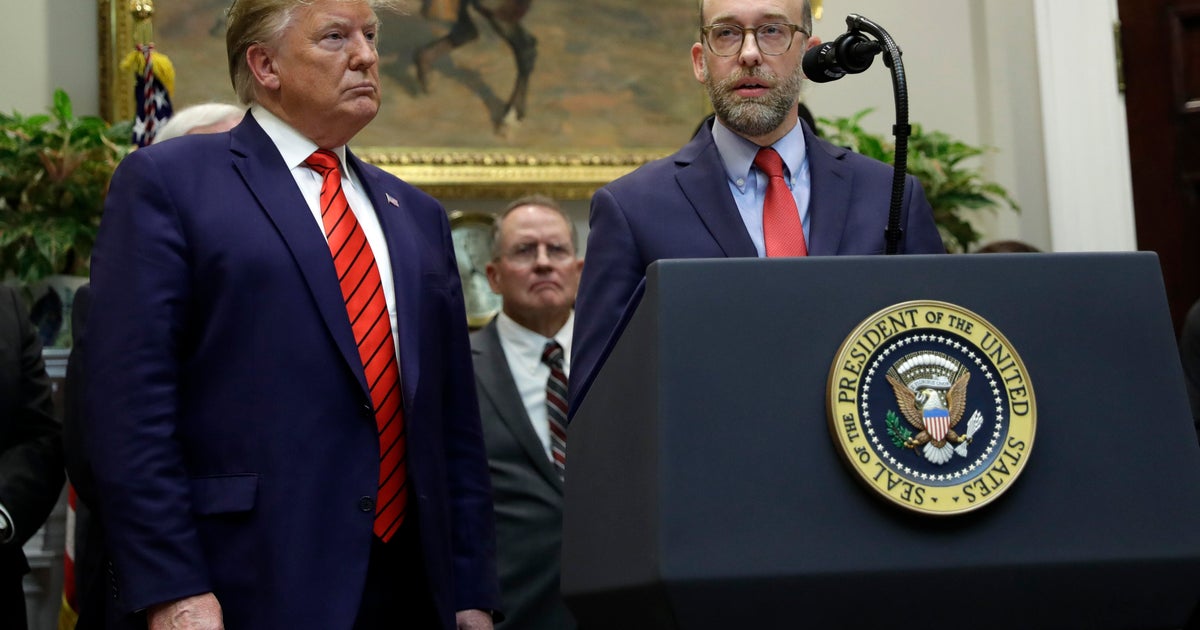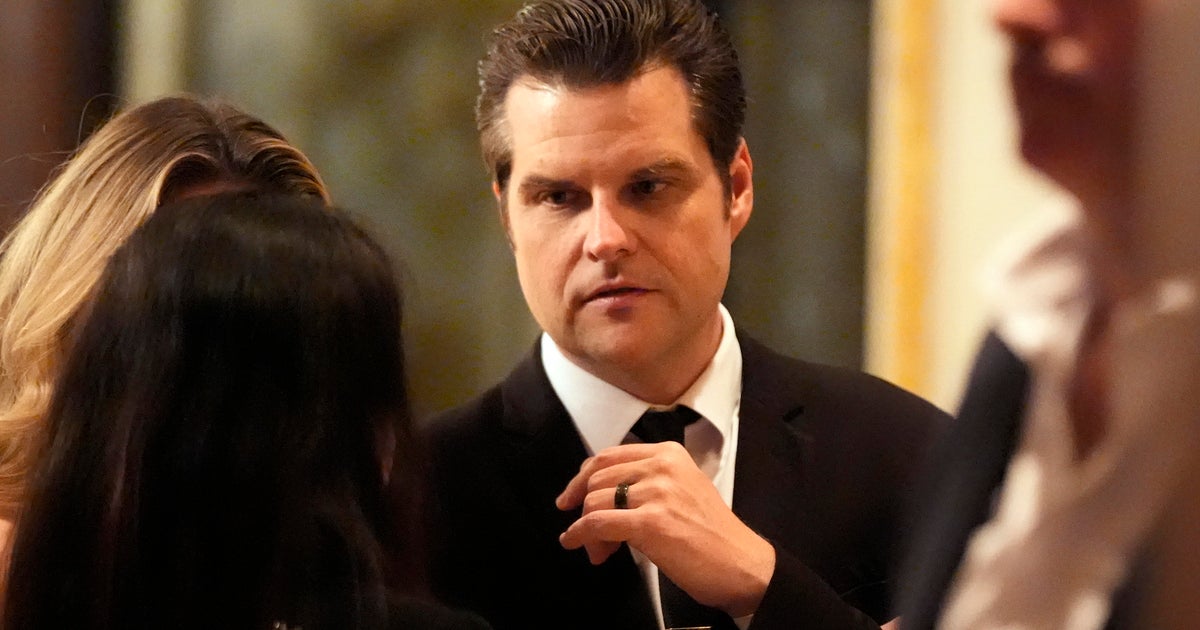Alleged clergy abuse survivors brace for "ugly" findings in Missouri investigation
The attorney general of Missouri is defending a new investigation of sex abuse within the Catholic Church, even though he doesn't have subpoena power and will have to rely on the cooperation of church leaders. Missouri is the first state to announce an investigation into clergy abuse since Pennsylvania released a scathing grand jury report last month that identified more than 300 abusive priests and more than 1,000 child victims over seven decades.
CBS News spoke with two alleged survivors of abuse in Missouri. They're meeting for the first time, but for decades, Michael Sandridge and Joe Eldred shared a painful connection.
"For the two of you, at your lowest point, what did that look like?" CBS News correspondent Nikki Battiste asked.
"It looked like a rope around my neck and me sitting on the windowsill, ready to jump," Eldred said.
"I'd be driving in the car, and think, 'If — if I hit the bridge and I get killed that way, then I don't have to think about anything,'" Sandridge said.
Sandridge said he couldn't think about the abuse he endured in the early 1970s starting at the age of 10 when he says a priest molested him.
"I'm crying the whole time. And he goes, 'Why are you crying?' And I couldn't even answer. And he goes, 'You have to stop that. Nothing happened. This isn't anything wrong. This is how special friends react,'" Sandridge said.
Another priest, Monsignor Thomas O'Brien, allegedly helped facilitate the abuse by supplying alcohol and drugs. A decade later, Eldred claims O'Brien was one of three priests who sexually abused him starting around the age of nine.
"He had me perform oral sex on him, and then threatened that if I ever told anyone, I would be kicked out of the church, and that my parents would disown me. I'd lose my family. And that I'd go straight to hell," Eldred said.
The Diocese of Kansas City–Saint Joseph allegedly received multiple warnings over several years about troubling behavior by O'Brien, including a letter from a nun who reported his "extremely heavy drinking." After an allegation of sexual misconduct with a minor in 1983, the diocese sent him to a residential treatment facility but allowed him to return the following year to a "limited ministerial assignment." The church finally removed him from ministry in 2002. He died 11 years later.
Missouri Attorney General Josh Hawley recently announced the first statewide investigation into clergy sex abuse since a Pennsylvania grand jury report identified hundreds of predator priests.
"We're not going to pull our punches," Hawley said, adding, "We have an obligation to the public to get all of the facts and to lay them out and that is exactly what we are going to do."
Lawyer Rebecca Randles estimates there are thousands of victims across Missouri. She's skeptical of whether the attorney general can conduct a thorough investigation.
"The reason it's not enough is because the investigation that's being looked at by the attorney general doesn't have subpoena power," Randles said.
Unlike the grand jury in Pennsylvania, Hawley's investigation won't be able to force the church to hand over its documents. Hawley said under Missouri state law, only local prosecutors can issue subpoenas or convene grand juries. So he's relying on assurances from church leaders like St. Louis Archbishop Robert Carlson.
"Any files that they want to see will be available to them," Carlson said.
"Can you really trust all the dioceses to turn over all of their documents to you?" Battiste asked.
"Well if they don't, then we'll make that fact known," Hawley said. "You want to believe folks when they say they're going to cooperate, but you have to see."
Sandridge and Eldred settled lawsuits with the church in 2014. In an email to CBS News, the diocese said "their specific claims were not officially investigated ... But we do believe them to be victims of clerical sexual abuse."
Sandridge wants Hawley to "open up everything."
"It needs to be an honest investigation," Eldred added. "If anybody's going to heal from this, if the church is going to heal, then they need to rip that Band-Aid off and open it up. Clean that wound out for all to see. It'll be ugly. It's gonna be nasty, but it needs to happen."
The Kansas City bishop has said he's "happy" to cooperate with the attorney general's investigation. The diocese notes that "today, any priest would be immediately removed at the first credible allegation."
Top prosecutors in multiple states tell CBS News they're reviewing the Pennsylvania report and considering options for their own investigations. But different states have different laws over how far they can go.



